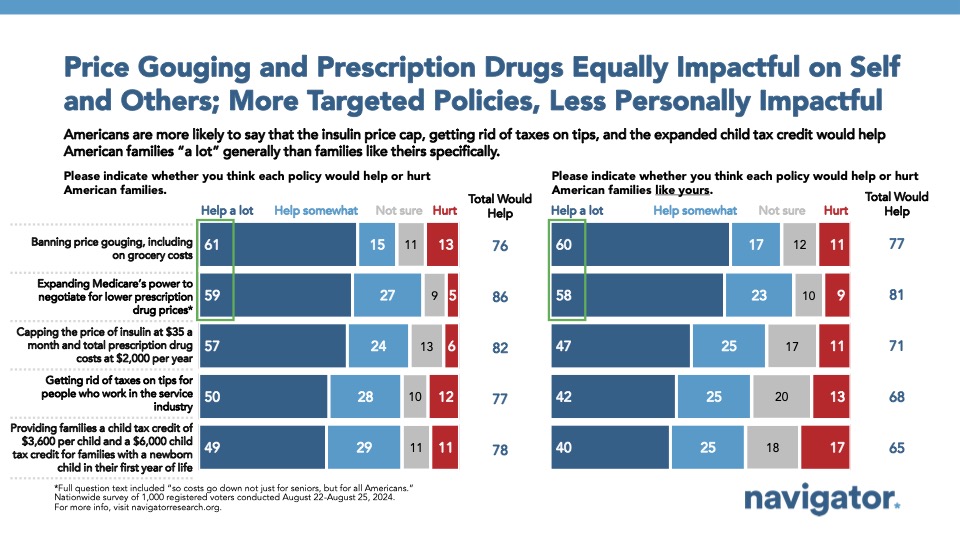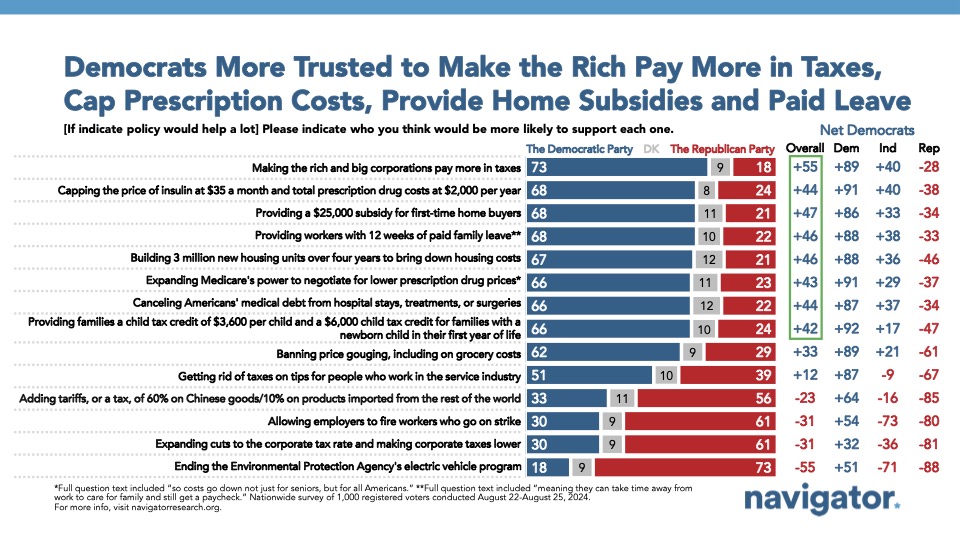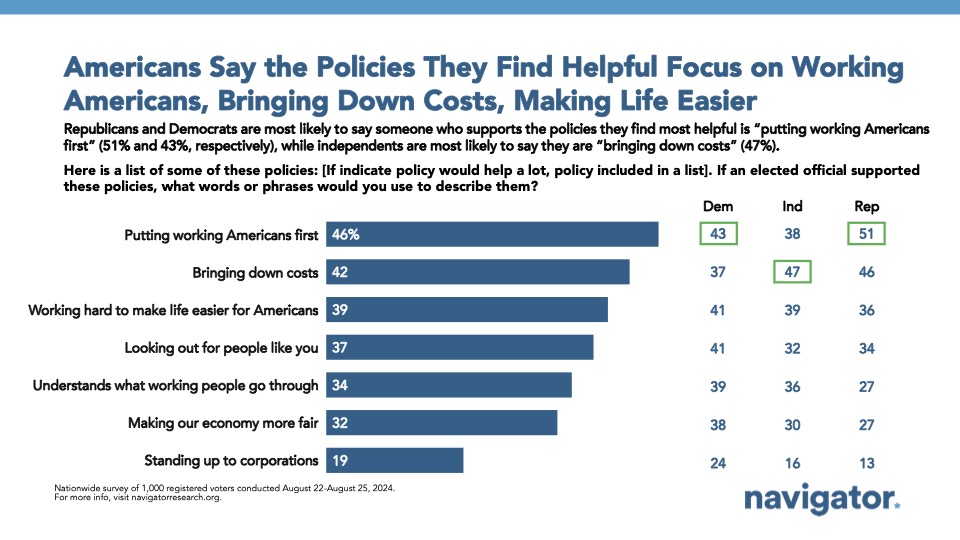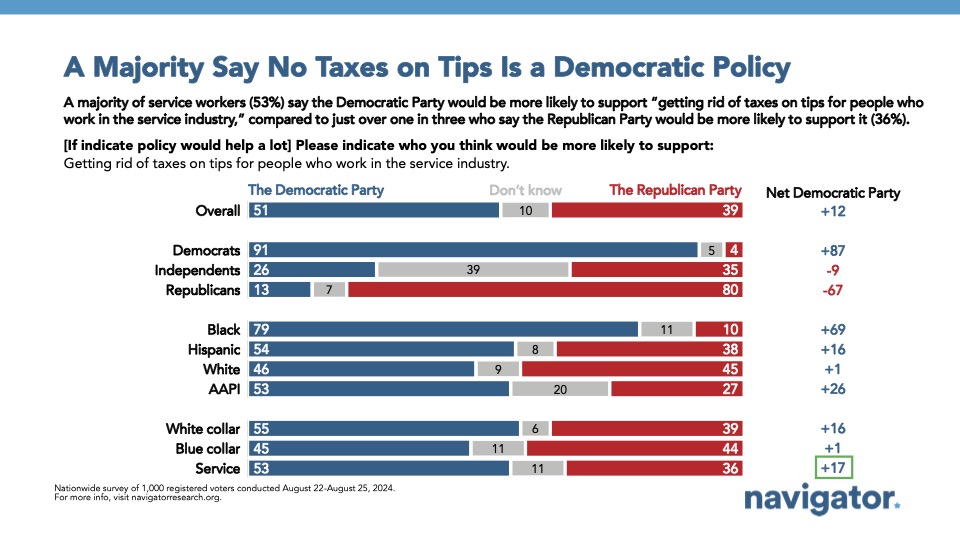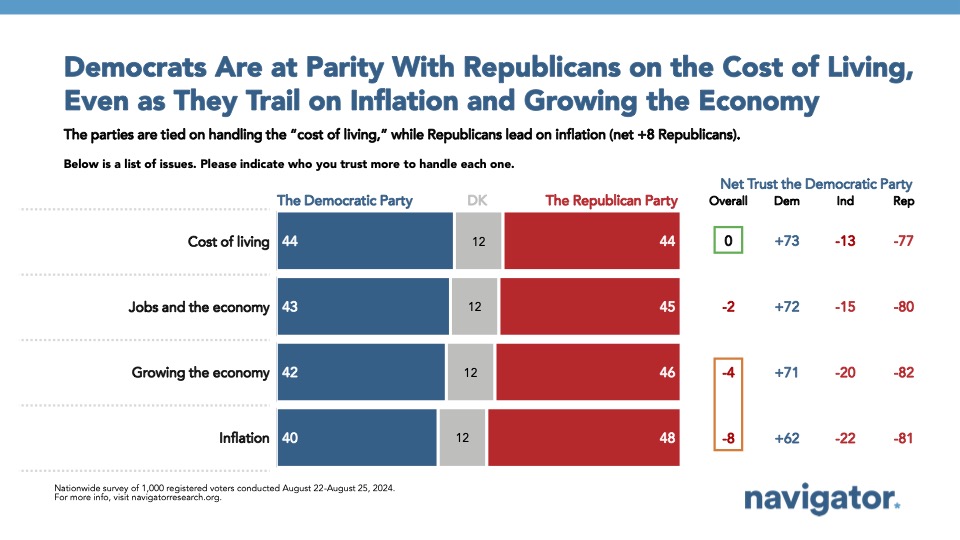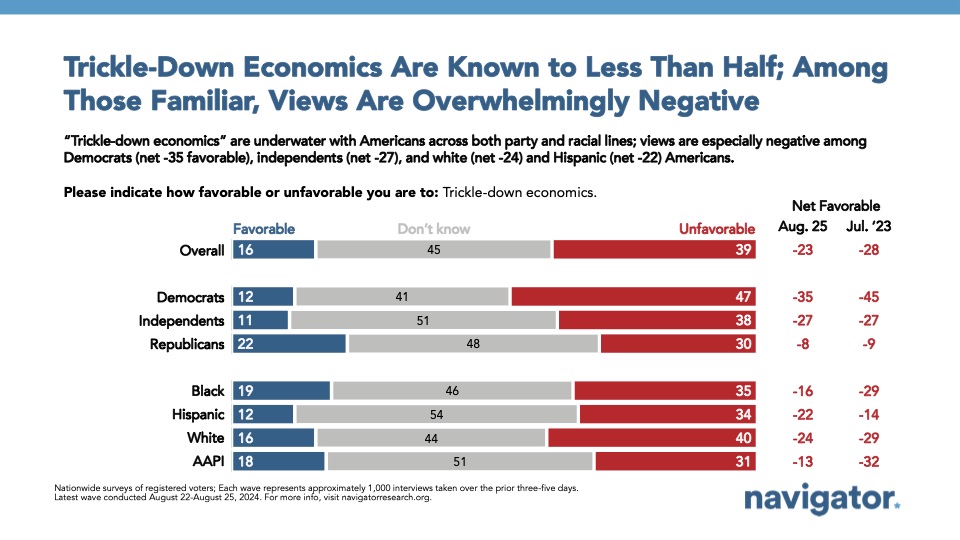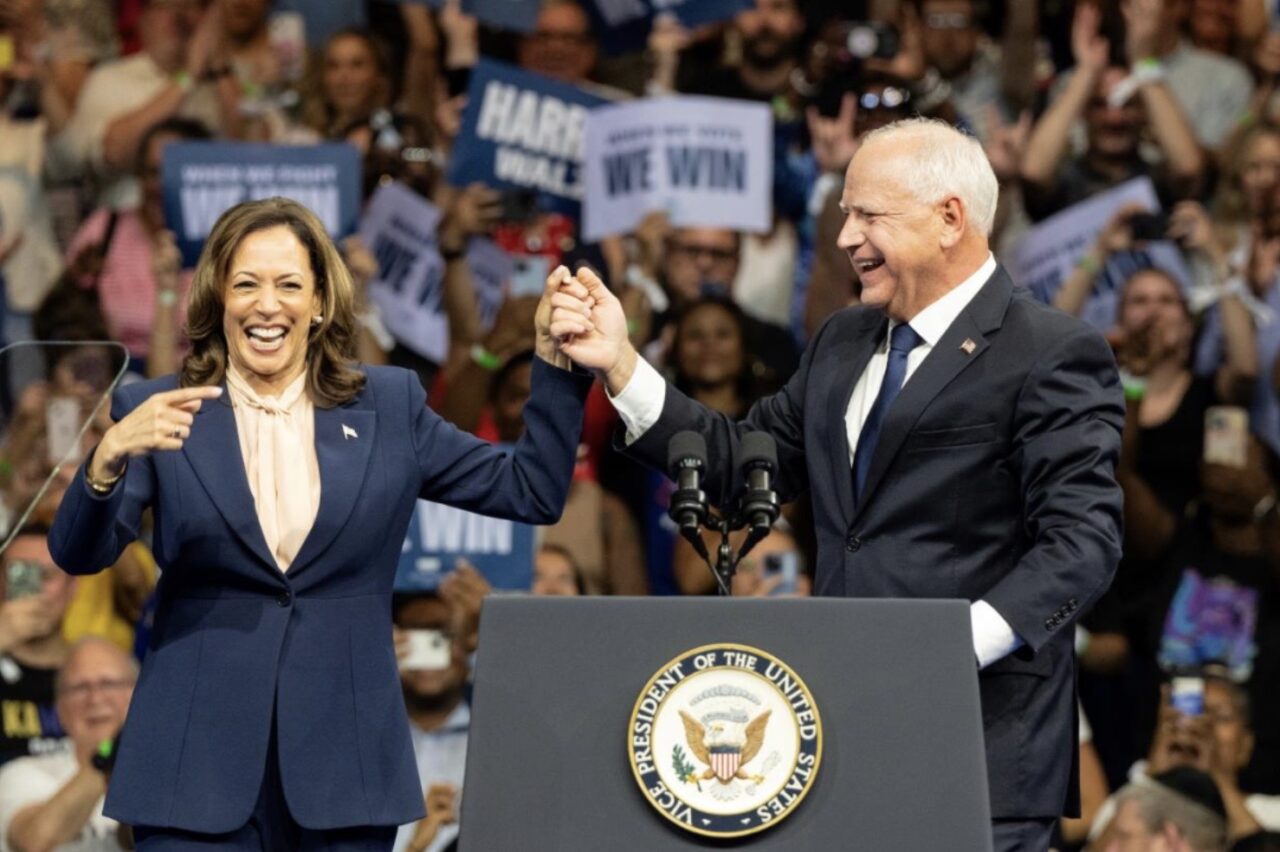Poll: Economic Policies
This Navigator Research report contains polling data on the latest perceptions of the economy, including who Americans trust to handle economic issues, what policies are seen as most helpful for American families, and which party is seen as most likely to support those policies.
Policies to bring down costs for American families, including banning price gouging on groceries, are viewed overwhelmingly favorably.
Proposals to ban price gouging, expand Medicare’s power to negotiate lower drug prices, cap insulin costs, and provide workers with 12 weeks of paid family leave are seen as the most helpful policies for American families. 76 percent of Americans say that banning price gouging, including on grocery costs, would help American families, including 61 percent who say it would help “a lot.” More than four in five say expanding Medicare’s power to negotiate for lower drug prices and capping the price of insulin at $35 a month would help American families (86 percent and 82 percent, respectively). Family-focused economic policies also garner significant support, with more than three in four agreeing that 12 weeks of paid family leave, as well as a child tax credit of $3,600 per child and $6,000 for a newborn, would help American families (77 percent and 78 percent, respectively).
- 77 percent believe getting rid of taxes on tips for people who work in the service industry would be helpful for American families, including 81 percent of those working a service industry job.
Several economic policies enjoy support from Americans across the political spectrum.
87 percent of Democrats, 72 percent of Republicans, and 70 percent of independents believe a child tax credit would be helpful for American families. Similarly, banning price gouging garners support across partisanship, with 88 percent of Democrats, 66 percent of Republicans, and 63 percent of independents saying it would be helpful for American families.
Americans associate Democrats with the economic policies they say would be the most helpful for American families.
More than two in three believe Democrats are more likely than Republicans to support policies like making the rich and big corporations pay more in taxes (net +55; 73 percent Democrats more likely – 18 percent Republicans more likely), capping the price of insulin (net +44; 68 percent Democrats more likely – 24 percent Republicans more likely), providing a subsidy for first time home buyers (net +47; 68 percent Democrats more likely – 21 percent Republicans more likely), providing families a child tax credit (net +42; 66 percent Democrats more likely – 24 percent Republicans more likely), and banning price gouging (net +33; 62 percent Democrats more likely – 29 percent Republicans more likely). A majority believe getting rid of taxes on tips for people who work in the service industry is more likely to be a Democratic-supported policy (51 percent Democrats more likely – 39 percent Republicans more likely), despite the economic policy being a part of both major parties’ platforms.
- 46 percent would describe an elected official who supports the policies they indicated would be helpful as “putting working Americans first.” Similarly, 42 percent would describe such an elected official as “bringing down costs,” and 39 percent would describe them as “working hard to make life easier for Americans.”
Americans are split on who they trust most to handle the cost of living, jobs and the economy, and growing the economy.
44 percent of Americans say they trust Democrats more to handle the cost of living, while 44 percent say they trust Republicans more to handle the issue. Republicans have a narrow 2-point advantage over Democrats on trust in handling jobs and the economy (45 percent trust Republicans more – 43 percent trust Democrats more) and a 4-point advantage on growing the economy (46 percent trust Republicans more – 42 percent trust Democrats more). Republicans hold their greatest trust advantage when it comes to handling inflation (net +8; 48 percent trust Republicans more – 40 percent trust Democrats more).
- Women trust Democrats more when it comes to economic issues, trusting Democrats more to handle the cost of living by an 8-point margin (47 percent trust Democrats more – 39 percent trust Republicans more), jobs and the economy by a 5-point margin (46 percent trust Democrats more – 41 percent trust Republicans more), and growing the economy by a 2-point margin (44 percent trust Democrats more – 42 percent trust Republicans more).
- While a majority of Americans are familiar with the term “trickle-down economics” (55 percent), the term is viewed widely negatively, with only 16 percent saying they have favorable feelings (net -23; 39 percent unfavorable – 16 percent favorable).
About The Study
Global Strategy Group conducted a public opinion survey among a sample of 1,000 registered voters from August 22-August 25, 2024. 100 additional interviews were conducted among Hispanic voters. 72 additional interviews were conducted among Asian American and Pacific Islander voters. 100 additional interviews were conducted among African American voters. 100 additional interviews were conducted among independent voters. The survey was conducted online, recruiting respondents from an opt-in online panel vendor. Respondents were verified against a voter file and special care was taken to ensure the demographic composition of our sample matched that of the national registered voter population across a variety of demographic variables. The margin of error for the full sample at the 95 percent level of confidence is +/- 3.1 percentage points. The margin for error for subgroups varies and is higher.

